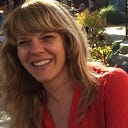What It’s Like to Get — and Give — the First Covid-19 Vaccine
The two women at the heart of the momentous occasion discuss its emotional significance
Shortly after 9 a.m. Eastern time yesterday morning, Michelle Chester, MD, administered the first Covid-19 vaccine in the U.S. to Sandra Lindsay, RN, an intensive care unit nurse at Long Island Jewish Medical Center in New York City. The momentous occasion was broadcast on live TV, narrated by New York Governor Andrew Cuomo, and brought tears to the eyes of many (including this reporter). But the two stars of the show were professional, calm, and collected, just as they’d been throughout their 10 months working on the front lines of the pandemic.
“As a clinician, my focus was my patient — and I’m referring to her as a patient, but my focus was the nurse — and making sure that I do everything the right way for her, as I would do for any patient that I see,” says Chester, who is the director of Employee Health Services at Northwell Health.
“This is what we do, this is our job,” Lindsay says. “I [told] my colleagues and my leaders at Long Island Jewish that when my time comes around, I will have no hesitation about taking the vaccine. [Working] in a high-risk area, I think it was important for me to take the vaccine. Also being a leader in the organization, I want to lead by example.”
Lindsay has been taking care of Covid-19 patients since March, while Chester’s job is to ensure the health and safety of Lindsay and the other 70,000 employees in the Northwell medical system.
Despite their composure at the time, both women said that upon reflection, thinking of the lives lost to the pandemic and the sacrifices made by so many, the moment felt emotional.
“My team and I have been toiling for so many months — as have all the essential workers, health care workers around the world — and so I felt a sense of relief and hope and healing, and that in the coming months we’ll be able to get back to some kind of normalcy,” Lindsay says.
“I think where it truly got emotional for me was when you’re reflecting and you’re hearing everyone speak on who they’ve lost and what they’ve been through,” adds Chester. “That’s where I was getting emotional, thinking, ‘Okay, this is the light at the end of the tunnel. This is what’s going to help. Those people didn’t die for no reason.’”
For both women, the coronavirus pandemic is personal as well as professional. Chester lost two cousins and her church mother to the virus; Lindsey lost an aunt and uncle in addition to several other people that she knew.
The optics of the occasion, which Chester says was a coincidence, were also particularly poignant — both Chester and Lindsay are Black women from the West Indies, working in a pandemic that has disproportionately affected the Black, Indigenous, and Latinx communities.
“I’m glad it ended up that way because I don’t want my community, the Brown and Black community, to be afraid to take this, and in our culture, there’s a lot of hesitancy and questions,” says Chester. To anyone who’s still hesitant about taking the vaccine, she would ask, “What do we have to lose? We have a lot to gain, and what we have to gain back is our lives and our normalcy. That’s what we really have to think about.”
“I’m happy that I got the opportunity and got the platform to get the vaccine; to be able to instill some confidence in the Black community, the minority community; for them to see that the vaccine is safe, and to encourage people that they should trust the science,” Lindsay says. “When their time comes around — and I hope in the coming months, everybody will be afforded the same opportunity that I got today — that they will take the vaccine because everybody needs to pull together to do their part to eradicate Covid-19.”

